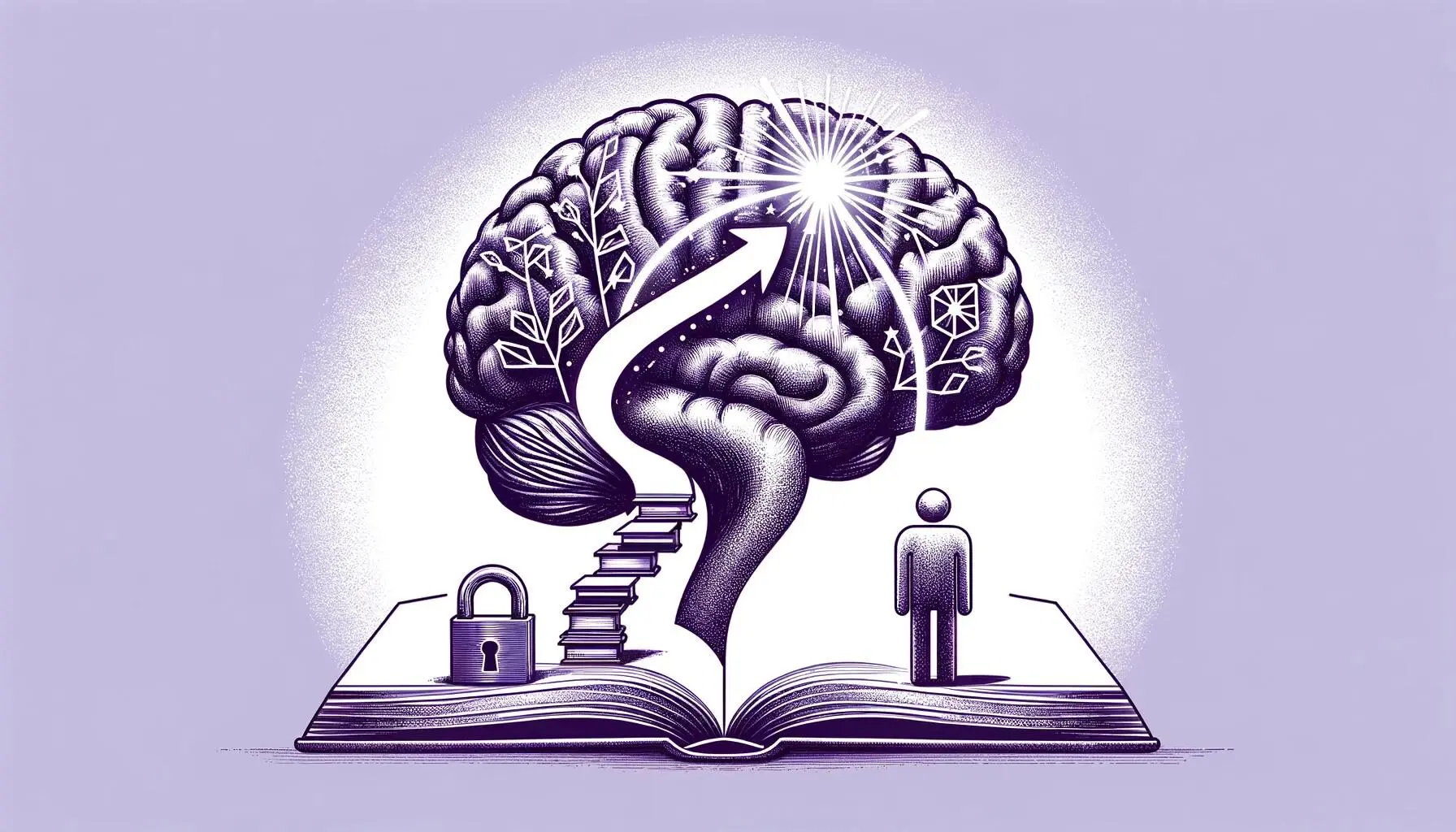The sound of a page turning is so easy, and almost insignificant. However, it’s much more than the sound of paper. This flip, this shift from one moment to the next, brings with it a sigh of clarity. Many people find reading to be more than just a daily hobby. It’s therapy that includes the help of a spine and a name. The impact of reading on mental health isn’t just an exaggeration of poetry; it’s measured, real, tangible, and significant.
Table of Contents
Books as a Safe Haven: A Way to Escape Without Leaving
You’ve had a an extended day. Your thoughts are in a haze and your breath is shallow. You lie in bed, read an e-book, and in moments, you’re under the Martian sky or tackling the mystery of a murder within Victorian London. It’s not only entertainment. That’s escape. Sometimes, escape can mean life or death.
Reading can provide a psychological buffer from the triggers for anxiety. Researchers at the University of Sussex, reading can reduce stress by as much as 68 percent–more efficient as listening to music or taking walks, or drinking tea. A mere six minutes of reading can lower the pace of your heart and relieve tension.
The secret? It’s in the in the absorption. When you’re immersed in a story the brain gets a brief timeout from thinking about bills that aren’t paid or emails that haven’t been read. It temporarily stows away actual stressors and replaces them with imaginary ones. This isn’t a form of escape; it’s a mental recharge.
Bibliotherapy: Yes, It’s a Real Thing
Did you ever hear of bibliotherapy? It’s not some mysterious practice originating that came from a stale book group, but a thriving field that helps people who are suffering from psychological stress by using carefully selected texts. It began in World War I, when hospitalized veterans were urged to read fiction and poetry in order to deal with trauma.
Therapists nowadays often recommend specific books geared to clients’ requirements. If you’re who is struggling with grief, a book called A Man Called Ove could be helpful. If you are suffering from anxiety, Try The Midnight Library. Particularly, there’s an app for reading, similar to FictionMe which allows you to discover stories about any topic. Do you enjoy mafia tales or romantic tales? Choose a genre, and you’ll be able to locate novels that have the highest ratings and ratings from readers.
A meta-analysis in 2013 released in PLoS ONE found that bibliotherapy significantly reduced the severity of depression. In some instances, the results were similar to conventional cognitive therapy. Imagine printing words that resembled psychotherapy in certain instances.
Of course, it’s no replacement. However, it could be a friend. Sometimes it is the presence of a well-chosen metaphor may provide more comfort than a friend who’s struggling to find the appropriate words.
Empathy by Osmosis: Fiction and Emotional Intelligence
Switch to another gear. There’s more to it than soothing nerves or decreasing cortisol. Reading fiction and reading books can also help build empathy. If you are reading a book written from the viewpoint of someone else you become a part of their world. You are able to think about their fears and feel their pain, feel the choices they make.
A study conducted by Science discovered that reading novels improves the ability of Theory of Mind, which is the ability to recognize the thoughts, beliefs, intentions and their emotions. This is crucial in terms of emotional intelligence as well as mental resiliency. It helps us build our own ability to comprehend others, and as a result, ourselves.
If someone claims that reading can help you become more of a person it’s not just a metaphor. They’re probably talking about real neuroscience.
Nonfiction, Memoir, and Self-Understanding
Not everyone likes fiction. Some people prefer the truth without filtering. That’s okay. Memoirs, essays as well as self-help guides carry their own therapeutic power. They provide connections. An experience shared. Most of them are available for iOS gadgets through thematic apps. The printed books aren’t required or even required, and there are no-cost stories available online.
If someone is reading The Bell Jar or Man’s Search for Meaning, they aren’t just absorbing information; they also observe their own struggles being mirrored and refracted. Sometimes, it’s the only way to feel a bit more at ease.
Furthermore the educational non-fiction (books on mindfulness, psychology and trauma) provides readers with tools. A book like Reading the Body keeps the Score will not completely heal trauma however, it does explain the process. A reason is a potent alternative to the anxiety.
The Ritual Itself: More Than the Content
Let’s get even more granular. Remove the characters, the stories as well as the narrative story arcs. What’s left? A routine. Sitting still. Focusing. Pages turning. A rhythm. Predictable. Slow. Controlled. For anxious minds, it’s gold.
In the world of endless scrolls and constant alerts reading teaches the mind to remain. To sit. To listen. This kind of meditative experience alone — regardless of the subject matter, it can control breathing, lower impulsivity and help build endurance.
A Word of Caution: Not All Reading Is Healing
Don’t get too romantic. The news you read for three hours per day will not ease your anxiety. It’s the same for scrolling Reddit or savoring memoirs about politics that cause more anger than understanding.
The kind of reading you choose to read is important. Healing reading is typically descriptive, reflective, character-driven and spiritually elevating. It encourages reflection and self-awareness. Make the right choice.
Reading should also not be a source of isolation. Utilize books as bridges not barriers. Use them to connect to others, whether via book groups, therapy or simply by saying, “You should read this.”
Conclusion
This is what we have reading books as a form of therapy and paper as a medicine and reading as a silent revolution. No matter if you’re stressed, depressed or heartbroken, or just frustrated, the effects of reading is transformative.
Does it have a solution? No. Does it count as a balm? Often, yes. In a society that values speed and noise as well as reaction reading is slow, quiet and purposeful. Maybe that’s because our brains want.

